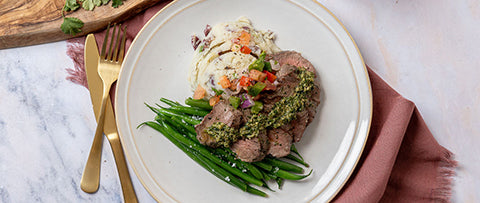What stands tall, wears a crown, and is sweet on the inside?
Pineapple! This juicy tropical fruit is a favorite during the Summer and has so many more benefits than just a garnish for your piña colada. Pineapples are full of vitamins, enzymes, antioxidants, and can even help build your immune system.
Keep reading to learn more about pineapples, why you might want to eat more of them, and how to incorporate them in your diet.
Neither A Pine, Nor An Apple
Have you ever wondered what a pineapple actually is or where it came from? I know, probably not. They’re just delicious, who cares?
But they’re actually quite an interesting fruit.
They’re not a pine or an apple, they’re a group of berries that have grown together and fused to a central stalk, also known as that pesky core you may struggle to get out of a fresh one.
Pineapples originated in South America, between southern Brazil and Paraguay. They were introduced to Europe around 1493 when Christoper Columbus brought them back from one of his excursions. Back then, they were displayed as beautiful decorations at dinner parties and served to the lavish and wealthy.
Fast forward to today where you can pretty much find them available in any grocery store and a staple in many homes, likely because their nutritional benefits are off the wall!
Nutritional Benefits
One cup of fresh pineapple chunks contains:
- 82 calories
- 22g carbohydrates with 2.3g fiber and 16g sugar
- 0.2g fat
- 0.9g protein
- 131% of your daily vitamin C needs
Pineapples also contain smaller amounts of important vitamins and minerals including:
With so many micronutrients, pineapples have many health benefits. The largest benefit is vitamin C--an essential dietary component since we cannot make it ourselves. Vitamin C is required for the production of collagen and certain neurotransmitters, it’s involved in protein metabolism and is important for connective tissue and wound healing.
Moreover, pineapples are a great source of antioxidants, which may reduce the risk of chronic diseases such as heart disease, diabetes, and certain cancers. Pineapples contain a digestive enzyme known as bromelain, which breaks down proteins and aids in digestion. They also have anti-inflammatory properties that may boost the immune system!
Aren’t pineapples and all tropical fruits too high in sugar, though? Remember that there are no “bad” foods. The sugar in pineapple will provide immediate energy to the body, and that’s why it’s important to consume an appropriate portion of pineapple. You also get fiber in pineapple to slow digestion and balance the effects of the sugar. You should practice portion control with everything you eat.
How To Include Pineapple In Your Diet
So what’s the best way to enjoy this sweet, super food?
These babies are at their prime from March to July. They can be enjoyed fresh, frozen, canned, dried, and in juice form. Keep in mind that the nutritional content of canned pineapples differs from that of fresh pineapples and also contain fewer vitamins and minerals. If you opt for canned pineapples for convenience, try to get them with no added sugar and canned in fruit juice instead of syrup.
An appropriate portion of pineapple is about the size of your fist. Pair with a protein and fat for a balanced meal or snack! Pineapples are an extremely versatile fruit that you can use in appetizers, entrees, desserts, and in both sweet and savory dishes. You can also enjoy them in your smoothie for some added sweetness or throw some on your pizza...or not. The great debate.
An example of pineapple in a savory dish is fit-flavors Hawaiian BBQ Meatballs--savory beef meatballs tossed in fit-flavors tangy orange BBQ sauce and sprinkled with fiber-rich sesame seeds. Served over fresh red bell peppers, red onions, zucchini, and vitamin-C packed pineapple.
This sweet, low calorie tropical fruit is also perfect for a snack in between meals or after your meal for a guilt-free dessert. Pineapple Upside Down Cake anyone?!
Bottom line...pineapples are delicious, low in calories, healthy, and should be making their way into your life!
Share this with a friend who needs to eat more pineapple.





